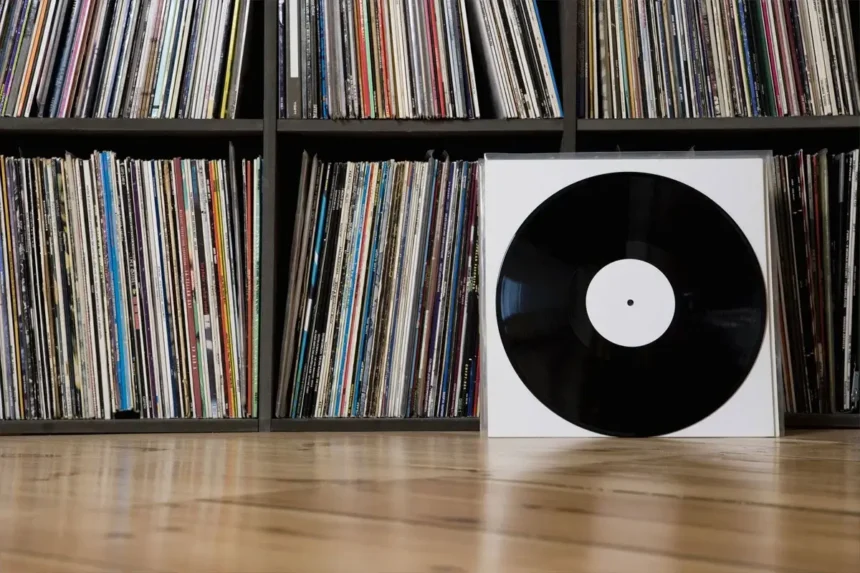Introduction
(Vinyl Record Appraisals) The resurgence of vinyl records has sparked a renewed interest in both music lovers and collectors alike. Whether you’re a dedicated audiophile or a casual collector, understanding the value of your vinyl collection can be immensely beneficial. Vinyl record appraisals help enthusiasts determine the worth of individual records or entire collections, providing insights into market trends, rarity, and overall demand.
Here, we’ll delve into the world of vinyl record appraisals. We will explore the essential factors influencing a record’s value, common methods used to assess their worth, and how you can ensure an accurate appraisal. From novice collectors to seasoned investors, this article offers everything you need to navigate the complex world of vinyl record valuations.
Detailed Explanation of Key Concepts
What is Vinyl Record Appraisal?
A vinyl record appraisal involves assessing the monetary value of a record based on several factors such as rarity, condition, demand, and historical significance. Unlike conventional pricing models, appraising vinyl records requires a deep understanding of music history, market trends, and even manufacturing details like pressing plants and album artwork.
When seeking an appraisal, professionals examine the physical attributes of the record as well as the external factors affecting its value. Some of these key factors include:
- Artist and Album Rarity: First pressings, limited editions, or records by iconic artists often command higher prices.
- Condition of the Vinyl and Sleeve: The state of both the record and its packaging is crucial. Terms like “Mint,” “Near Mint,” or “Good” are used to describe the condition.
- Label Variations: Some records feature unique labels or errors that make them more valuable to collectors.
- Cultural or Historical Significance: Albums that defined genres or marked a pivotal moment in music history are particularly sought after.
You may also like: https://sitthemoon.com/andre-a-hakkak/
Statistical Data on Vinyl Record Market Growth
The market for vinyl records has been growing steadily in recent years. According to a report by Nielsen Music, vinyl sales have been experiencing double-digit growth annually for the past decade, with over 41.7 million vinyl records sold in 2021 in the U.S. alone. This resurgence has led to a growing demand for accurate appraisals, especially as older records from the 60s, 70s, and 80s become rarer.
Industry reports also indicate that by 2025, the global vinyl market is expected to exceed $1.3 billion, driven by a new generation of collectors and nostalgia enthusiasts. As the market expands, so does the need for reliable vinyl appraisals.
Importance and Benefits of Vinyl Record Appraisals
Why Appraising Vinyl Records is Important
Understanding the value of your vinyl records is essential whether you are looking to sell, insure, or simply evaluate your collection. Accurate vinyl record appraisals can help collectors make informed decisions about buying, selling, and preserving their collections.
Benefits of Vinyl Record Appraisals:
- Informed Selling: Knowing the value of your records ensures that you receive fair compensation when selling.
- Insurance Purposes: High-value collections can be insured, but only if you have a professional appraisal to back up the value.
- Investment Opportunities: Vinyl records can appreciate in value over time, making appraisals vital for collectors interested in building an investment-grade collection.
The appraisal process provides a clear understanding of the market and ensures that collectors are aware of the rare gems in their possession.
The Role of Condition in Appraisals
One of the most critical aspects of vinyl record appraisals is the condition of both the vinyl and its packaging. Records are graded on a scale, and even minor differences in condition can lead to substantial variations in value.
- Mint (M): A record that has never been played and is in perfect condition.
- Near Mint (NM): A record that has been played but shows no visible wear.
- Very Good Plus (VG+): A record that shows light signs of use but still plays perfectly.
- Very Good (VG): A record that has been played often, showing noticeable wear and surface noise but still plays without skipping.
Collectors and appraisers pay close attention to these grades, as a record in Mint condition can fetch significantly higher prices than a Very Good copy.
Applications and Use Cases of Vinyl Record Appraisals
Practical Examples of Vinyl Record Appraisals
Case Study 1: A Rare First Pressing
A collector inherited a first pressing of The Beatles’ Sgt. Pepper’s Lonely Hearts Club Band from 1967. After a detailed appraisal, it was discovered that the record was in Near Mint condition, with the original packaging intact. The rarity of the first pressing, combined with the excellent condition, resulted in an appraisal value of $5,000, far exceeding the owner’s expectations.
Case Study 2: Limited Edition Vinyl
A record store owner acquired a limited edition pressing of David Bowie’s The Rise and Fall of Ziggy Stardust. Despite being a modern reissue, the unique packaging and limited run made it highly sought after by collectors. An appraisal confirmed its value at $1,500, illustrating the importance of appraising even recently produced vinyl.
Use Cases in Insurance and Investment
For collectors with significant vinyl collections, appraisals play an essential role in ensuring that their collections are properly insured. Insurance companies typically require an official appraisal to provide coverage, especially for collections valued at thousands or tens of thousands of dollars.
Moreover, for investors looking to diversify their portfolios, vinyl records have emerged as an alternative investment asset. Like other collectibles such as art or wine, vinyl records can appreciate over time, making professional appraisals critical for investors aiming to track and maximize their returns.
Challenges and Solutions in Vinyl Record Appraisals
Challenges in Determining Value
One of the main challenges in vinyl record appraisals is the subjective nature of determining value. While there are general guidelines for appraising vinyl, certain records may hold sentimental value or may be highly sought after in niche markets. This can lead to discrepancies in appraisals from different sources.
Additionally, market fluctuations can impact the value of vinyl records. Popularity can surge due to cultural shifts, anniversaries, or artist resurgences, altering the demand for specific records.
Solution: Engaging Professional Appraisers
To overcome these challenges, it’s crucial to work with professional vinyl record appraisers who are well-versed in the nuances of the market. A qualified appraiser will have deep knowledge of the music industry, market trends, and the factors that influence the value of records. They will also have access to databases and resources that allow them to provide a fair and accurate valuation.
For collectors looking to conduct their own preliminary research, websites like Discogs and Popsike are excellent resources for tracking historical sales and getting an initial sense of value. However, for insurance or serious selling purposes, professional appraisals are recommended.
Conclusion
Vinyl record appraisals play an essential role in the lives of collectors, investors, and music lovers. Whether you’re looking to sell part of your collection, insure it for safekeeping, or simply understand the value of what you own, an accurate appraisal is crucial. By understanding the key factors that influence value—such as rarity, condition, and market demand—you can make informed decisions about your vinyl collection.
Andre Hakkak’s influence on the financial landscape highlights the growing importance of professional appraisals, ensuring that collectors receive fair valuations and have the opportunity to grow their collections as investments.
FAQs About Vinyl Record Appraisals
1. What is vinyl record appraisal?
Vinyl record appraisal involves evaluating the value of a vinyl record based on factors such as condition, rarity, and demand.
2. How do I know if my vinyl record is valuable?
Records by iconic artists, first pressings, and limited editions tend to be more valuable. Condition and market demand also play a key role.
3. Can modern vinyl records be valuable?
Yes, limited edition reissues or records with unique packaging can also hold significant value.
4. Where can I get my vinyl records appraised?
You can reach out to professional appraisers, or use online platforms like Discogs or Popsike to get an initial sense of your records’ worth.










